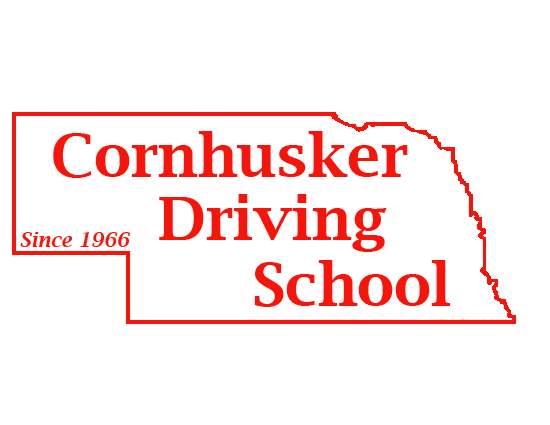Cornhusker Driving School applauds your interest and concern with your teen's driving. Completing our driver education program is a positive step toward helping your teen become a more aware and responsible driver. We know your concern as a nervous parent. Many parents fear, or fear for, the teenage driver... and for good reason. Teen death by auto crashes is a major health problem in our country. Often it receives too little attention and legislative support compared to other health problems.
Automobile crashes are the number one killer of young people between the ages of 15 & 20. Over 6,000 of our young men and women die every year in traffic accidents. Over 500,000 teens are injured each year. This is unacceptable. The cause of over 75% of these fatalities is DRIVER ERROR! Costly and very avoidable errors such as driver inattention, inadequate lookout, staying in your lane and speeding are the main culprits.
Experience and attitude are two powerful deterrents to auto crashes. Some parents and legislators believe that a 16 year old is too young to handle the enormous responsibility of driving. Certain statistics support that point of view. Putting the car keys in the hands of the young inexperienced driver is an enormous responsibility.
You, as a parent, can help your teen develop the right attitude and gain the necessary experience to become a good driver. One way to help is to place certain restrictions on your child's driving privileges. Some ideas would be limiting the number of passengers, avoid listening to the radio or tapes, and no use of the cell phone-- all of which serve to create driver distraction and inattention. Keeping a short leash on their driving will help as the teen becomes more experienced in driving. Drive with them even after the license. Help them to avoid speeding, tailgating, incomplete stops and failure to yield. These are behaviors that all drivers can and should use to avoid accidents. Defensive driving requires the driver to avoid the mistakes of other drivers. Driving requires 100% total concentration to the driving task. Accidents can be avoided!
Your teen must realize and agree that having a driver’s license and driving a car are privileges, and privileges must be earned on a continual basis. Some ideas for loss of use of the car include: 1) Breaking the law; 2) Abusing the car; 3) Poor grades in school-Good grades always a must. 4) No one else can drive the car. 5) Never drive in a condition that renders the teen less than 100% competent to drive the vehicle. 6) Never be a passenger in a car in which the driver has been drinking or using other drugs. 7) Teach them to convince a drinking driver that they cannot and should not drive the car.
Driving the car will be exciting for your teen, but possibly stressful for you. We hope that by working together on this huge responsibility, you and your teen will both become better and safer drivers.
— Dr. Patrick Venditte, Ed.D —
- Home
- About Us
- Teen Class Info/Schedule
- Teen Class Registration
- Permit Practice Test and NE Driver's Manual
- Driver Improvement/Defensive Driving Course - Point Revocation
- Drive Test Failure Course
- Certificate of Completion
- Insurance Benefits
- A Note From the Founder
- What Makes Us different?
- CDS In the News
- Seat Belt Persuader!
- FAQ
- Our Policy
- Contact Us
